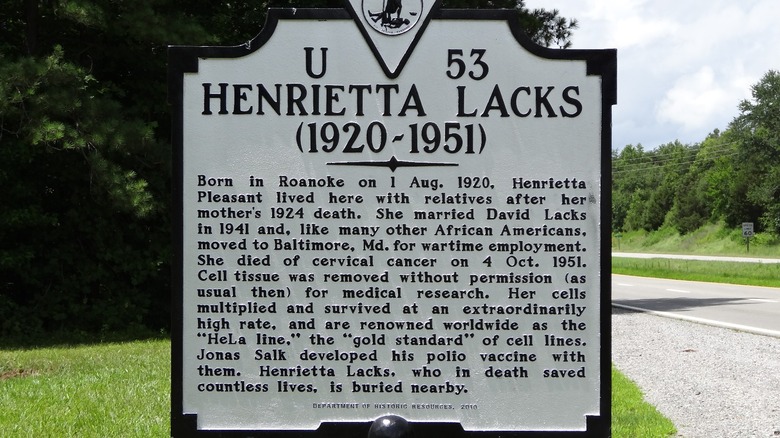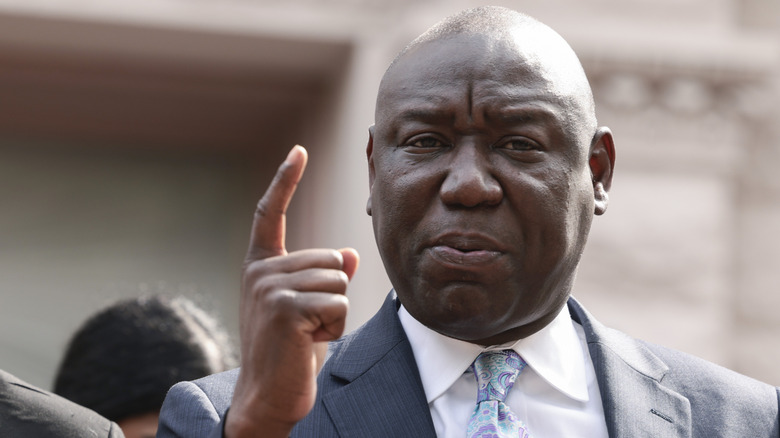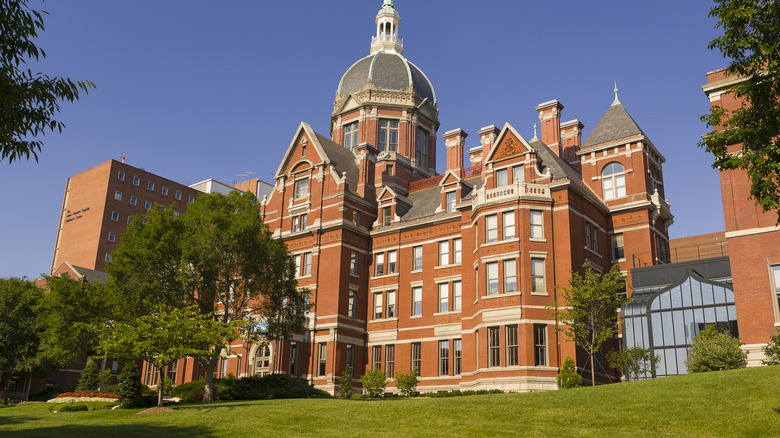Here's Why Henrietta Lacks' Family Is Suing A Pharmaceutical Company
When Henrietta Lacks was diagnosed with cervical cancer at Johns Hopkins Hospital in 1951, little did she know she would be significantly changing the future of medical science. As The Washington Post reported, doctors took cell samples from her without consent, but while most cells die quickly outside the human body in a lab environment, her "immortal" cells, as IFL Science called them, continued to replicate. Those cells were reportedly cloned and mass-produced — now referred to as HeLa cells, the first two letters of her first and last name — providing researchers an invaluable piece of the puzzle that they were lacking. Without them, modern advancements in everything from in vitro fertilization, genome mapping, and vaccinations, including the COVID-19 vaccines, would not have been possible, NPR reports.
Now, 70 years later now her descendants are suing pharmaceutical giant Thermo Fisher Scientific, accusing them of profiting off her stolen cells. The family had not been aware until years after her death that her cells had been responsible for the now multimillion-dollar industry that has grown out of the research, NPR notes. It was only in 2010 when the book "The Immortal Life of Henrietta Lacks" by author Rebecca Skloot was released that the origin of the HeLa cells became widely known (via The Washington Post).
The family wants a say in how her cells are used
At the heart of the suit is the family's feeling that there was racial motivation. At the time, Johns Hopkins was one of the few hospitals in her area that treated Black people, IFL Science noted, and Lacks was purportedly not the only Black woman they took nonconsensual samples from (via The Washington Post). Lacks died a year after her diagnosis in a segregated ward, and the family's lawsuit states they feel she was a victim of "a racially unjust medical system." The suit notes, "The exploitation of Henrietta Lacks represents the unfortunately common struggle experienced by Black people throughout U.S. history. Indeed, Black suffering has fueled innumerable medical progress and profit, without just compensation or recognition."
The family has previously tried to go after companies profiting from Lacks' genetic material, The Washington Post notes, but with little progress until they connected with Ben Crump, a well known civil rights attorney who Reuters notes has represented the families of Trayvon Martin and George Floyd. And this lawsuit is only the first the family is planning on bringing, according to The Baltimore Sun. As The Washington Post writes, the lawsuit asserts that anyone working with the cells should first get permission from the family to use her genetic material for profit. At a press conference, Crump stated, "Black people have the right to control their bodies. And yet Thermo Fisher Scientific treats Henrietta Lacks' living cells as chattel to be bought and sold."
Thermo Dynamic and Johns Hopkins may have admitted culpability
Part of the court filing against Thermo Dynamic points out that they have purportedly acknowledged culpability in documents on its website, with one stating, "HeLa cells were removed from Ms. Lacks and used for scientific research despite the fact that '[Ms.] Lacks and her family were unaware that her tissue was used in this way.'" And in another, the company reportedly admitted to "the widespread but unsanctioned use of HeLa cells from Henrietta Lacks."
Skloot's book, as well as the movie adaptation that followed starring Oprah Winfrey, moved Johns Hopkins to acknowledge they should have done more in the past. In a statement on its website, they note, "The publication of Skloot's book led Johns Hopkins to review our interactions with Henrietta Lacks and with the Lacks family over more than 50 years. At several points across those decades, we found that Johns Hopkins could have — and should have — done more to inform and work with members of Henrietta Lacks' family out of respect for them, their privacy and their personal interests." The Washington Post notes, however, that Johns Hopkins has never sold or profited off her genetic material.
"This will not be passed on through another generation," Ron Lacks, Henrietta's grandson, stated at a press conference (via The Washington Post). "We want the world to know that we want our family's legacy back."


